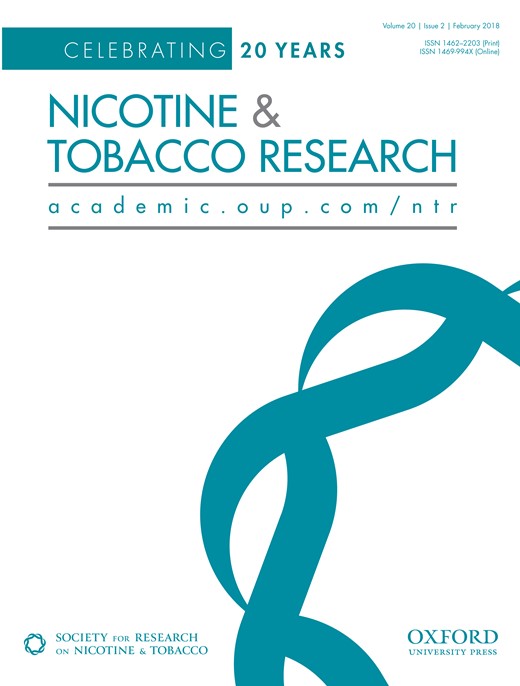-
Views
-
Cite
Cite
Nancy O’Neill, Omara Dogar, Mohammed Jawad, Ian Kellar, Mona Kanaan, Kamran Siddiqi, Which Behavior Change Techniques May Help Waterpipe Smokers to Quit? An Expert Consensus Using a Modified Delphi Technique, Nicotine & Tobacco Research, Volume 20, Issue 2, February 2018, Pages 154–160, https://doi.org/10.1093/ntr/ntw297
Close - Share Icon Share
Abstract
Waterpipe smoking is addictive and harmful. The determinants of waterpipe smoking may differ from those of cigarette smoking; therefore, behavioral approaches to support quitting may also differ between these two tobacco products. While some evidence exists on effective behavioral change techniques (BCTs) to facilitate cigarette smoking cessation, there is little research on waterpipe smoking cessation.
Twenty-four experts were selected from the author lists of peer-reviewed, randomized controlled trials on waterpipe smoking cessation. They were invited to two rounds of a consensus development exercise using modified Delphi technique. Experts ranked 55 BCTs categorized further into those that promote; “awareness of harms of waterpipe smoking and advantages of quitting” (14), “preparation and planning to quit” (29), and “relapse prevention and sustaining an ex-smoker identity” (12) on their potential effectiveness. Kendall’s W statistics was used to assess agreement.
Fifteen experts responded in round 1 and 14 completed both rounds. A strong consensus was achieved for BCTs that help in “relapse prevention and sustaining ex-smoker identity” (w = 0.7; p < .001) and a moderate for those that promote “awareness of harms of waterpipe smoking and advantages of quitting” (w = 0.6; p < .001) and “preparation and planning to quit” (w = 0.6; p < .001). Providing information on the consequences of waterpipe smoking and its cessation, assessing readiness and ability to quit, and making people aware of the withdrawal symptoms, were the three highest-ranking BCTs.
Based on expert consensus, an inventory of BCTs ordered for their potential effectiveness can be useful for health professionals offering cessation support to waterpipe smokers.
Waterpipe smoking is addictive, harmful, and gaining global popularity, particularly among youth. An expert consensus on behavior change techniques, likely to be effective in supporting waterpipe smokers to quit, has practice and research implications. Smoking cessation advisors can use these techniques to counsel waterpipe smokers who wish to quit. Behavioral and public health scientists can also use these to develop and evaluate behavioral support interventions for this client group.






Comments